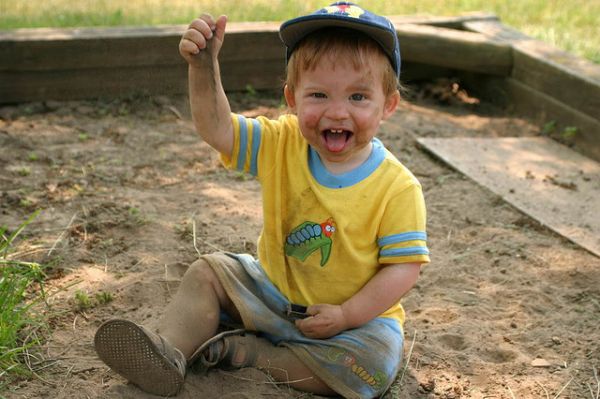Hygiene
There are numerous reports that suggest the excessive cleanliness practiced in modern society may be partly responsible for the increased incidence of allergic diseases. Repeated exposure while young to various types of bacteria and spores found in dirt, dust, and animal dander may actually protect against the development of allergies. A molecule known as an endotoxin naturally occurs in the outer membrane of bacteria. When the bacteria die the endotoxin is released into the environment. Children are exposed to these endotoxins by breathing them in, or by ingesting them when they put their hands or other objects into their mouths. The exposure to bacteria, viruses, and endotoxins is essential for the maturation of the immune system; less exposure leads to imbalanced immune responses.
Children’s early exposure to allergens and infections prime their immune systems to resist them later on. Although children in daycare seem to get sick more often than other children do, this is not necessarily a bad thing. These colds and other infections may be giving their immature immune systems a health workout, resulting in a lower incidence of asthma. Children with the highest degree of personal hygiene are the most likely to develop eczema and wheezing between the ages of two and a half and three and a half years. In 2000, a study of 61 infants between the ages of 9–24 months found that the more house dust an infant was exposed to, the less likely that they would suffer allergies.






No comments:
Post a Comment